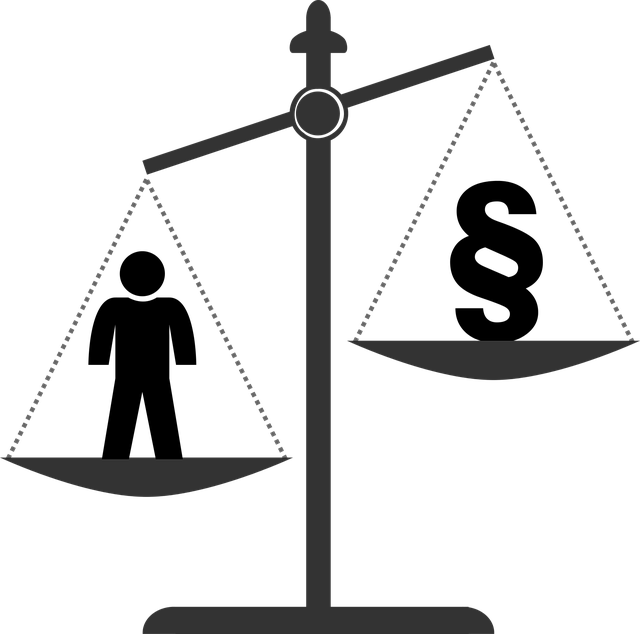Antitrust violation cases focus on maintaining fair market competition, preventing corporate misconduct that restricts trade or harms consumers. Due Process in Criminal Law Cases is a cornerstone for ensuring fairness during these legal battles, providing the right to be informed of allegations, present evidence, and face an impartial tribunal. By meticulously analyzing crucial elements like price fixing, market division, and abuse of dominant positions, white-collar defense strategies aim to challenge accusations and secure favorable outcomes. Historical cases like United States v. Microsoft and AT&T v. USA have defined antitrust enforcement boundaries, while recent trends emphasize consumer welfare in complex global digital strategies, underscoring the importance of robust legal representation.
“Antitrust violation cases play a pivotal role in maintaining fair market competition, but they are complex legal battles. This comprehensive guide delves into the intricate world of these cases, offering a detailed overview for both practitioners and enthusiasts. From understanding fundamental concepts to exploring historical perspectives, we examine key elements, due process considerations, and recent trends. By analyzing real-world scenarios, this article provides valuable insights into the legal proceedings and strategic evidence required to navigate successful outcomes in antitrust litigation, emphasizing the critical balance between competition and individual rights, particularly within the realm of Due Process in Criminal Law Cases.”
- Understanding Antitrust Violation Cases: A Comprehensive Overview
- The Role of Due Process in Criminal Law: Protecting Individual Rights
- Identifying Antitrust Offenses: Key Elements and Common Scenarios
- Legal Proceedings and Evidence: Navigating the Courtroom in Antitrust Cases
- Historical Perspective and Recent Trends: Lessons from Notable Antitrust Violation Trials
Understanding Antitrust Violation Cases: A Comprehensive Overview

Antitrust violation cases are legal battles centered around maintaining fair competition in markets, ensuring that businesses do not engage in anti-competitive practices such as price fixing, market division, or monopolization. These cases play a pivotal role in protecting the interests of both consumers and the broader economy by fostering competition, innovation, and lower prices. When a company is accused of violating antitrust laws, it triggers a meticulous investigation by regulatory bodies, followed by a detailed legal process. Understanding these cases involves delving into complex legal frameworks that balance the rights of businesses with the need to prevent market power abuses.
The Due Process in Criminal Law Cases ensures that corporations and individuals alike are treated fairly during antitrust investigations and trials. This includes the right to be informed of allegations, to gather and present evidence, and to face an impartial tribunal. Both philanthropic and political communities advocate for robust antitrust enforcement as a safeguard against corporate misconduct, ensuring fair play in the marketplace. Moreover, white collar defense strategies often come into play in these cases, focusing on legal arguments that challenge the merits of the accusations while navigating the intricate web of general criminal defense principles.
The Role of Due Process in Criminal Law: Protecting Individual Rights

In high-stakes cases involving antitrust violations, the role of due process in criminal law becomes paramount. Due process ensures that every individual accused of a crime receives fair treatment and protection of their rights throughout the legal process. This includes the right to be informed of the charges against them, the ability to confront accusers, and access to legal representation. Achieving extraordinary results in these cases often hinges on meticulous adherence to due process principles, ensuring that justice is not only served but also perceived as such by all parties involved.
The importance of due process in criminal law cases cannot be overstated, especially when complex issues like antitrust violations are at play. In jury trials, where public opinion can significantly influence the outcome, maintaining a fair and impartial process becomes even more critical. This not only safeguards the rights of the accused but also bolsters confidence in the legal system, ensuring that decisions are based on evidence and legal precedent rather than external factors or prejudice.
Identifying Antitrust Offenses: Key Elements and Common Scenarios

Identifying antitrust offenses is a complex process that requires careful consideration of key elements and common scenarios. In criminal law cases, particularly those involving white-collar crimes, understanding antitrust violations is crucial for both prosecutors and general criminal defense attorneys. The primary focus often revolves around anticompetitive practices that restrict trade or cause harm to consumers. These can include price fixing, market division, and the abuse of dominant market positions, among others.
Antitrust laws, such as those in the United States, provide a framework for evaluating these behaviors under due process principles. Common scenarios include companies colluding to set prices, dividing markets between them to prevent competition, or using their market power to squeeze out smaller competitors. Recognizing these patterns is essential, especially when preparing for jury trials where clear evidence and legal arguments are paramount. Effective white collar defense strategies often hinge on demonstrating the absence of these key elements to mitigate charges and secure a favorable outcome.
Legal Proceedings and Evidence: Navigating the Courtroom in Antitrust Cases

In antitrust violation cases, legal proceedings and evidence play a pivotal role in navigating the courtroom. The due process clause in criminal law ensures that defendants face fair trials, with every step of the investigative and enforcement process meticulously documented. This includes comprehensive record-keeping, from initial investigations to grand jury hearings and eventual trials, ensuring transparency and accountability throughout.
Evidence collection is a critical aspect, where prosecutors must demonstrate anticompetitive behavior through concrete facts and circumstances. This involves scrutinizing business practices, market data analysis, and witness testimonies. Winning challenging defense verdicts often hinges on the strength of evidence presented and adherence to due process, reflecting the importance of a robust legal framework in upholding the integrity of philanthropic and political communities.
Historical Perspective and Recent Trends: Lessons from Notable Antitrust Violation Trials

The historical perspective of antitrust violation cases reveals a continuous evolution in the legal landscape. From early investigations focused on price-fixing and market monopolies, to modern times where complex digital behaviors are scrutinized, these trials have shaped competition laws globally. Notable trials like United States v. Microsoft (1998) and AT&T v. USA (1974) stand out as pivotal moments. These high-stakes cases not only defined the boundaries of antitrust enforcement but also emphasized the importance of due process in criminal law cases, ensuring fair trials for corporations accused of anti-competitive practices.
Over time, recent trends in antitrust violation cases reflect a growing emphasis on consumer welfare and market competition. Across the country, these trials are becoming increasingly complex, involving intricate digital strategies and global market dynamics. As a result, successful winning challenging defense verdicts have become more crucial than ever for businesses facing antitrust charges. The lessons from these notable trials underscore the need for robust legal representation and strategic navigation in such high-profile cases.
Antitrust violation cases, as explored through this comprehensive guide, highlight the intricate balance between fostering competition and protecting consumers. By understanding the key elements of these offenses, the importance of due process in criminal law, and navigating the historical landscape, we can better equip ourselves to identify and address antitrust breaches. This knowledge is vital for both legal professionals and business entities, ensuring fair market practices and upholding the integrity of the economy. In today’s competitive markets, staying vigilant and informed about these cases is crucial to maintaining a robust and transparent business environment.






